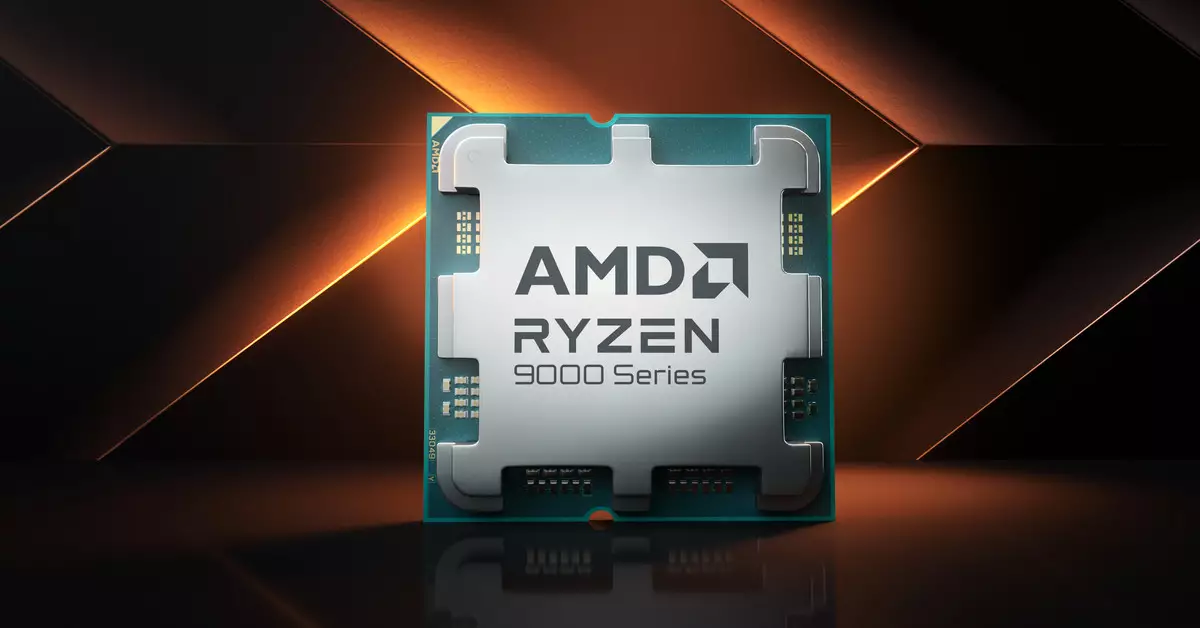AMD’s Ryzen series has long been associated with cutting-edge technology and superior performance. However, recent revelations about the upcoming Ryzen 9000X3D desktop processors suggest a more subdued evolutionary leap than many had anticipated. Despite being unveiled via a leak from an MSI presentation, it appears that AMD’s latest offering may not deliver the performance surge gamers and tech enthusiasts had hoped for.
A key takeaway from the leaked presentation is the multicore performance of the Ryzen 9000X3D, which reportedly presents impressive gains compared to its predecessor, the Ryzen 7 7900X3D. Specifically, tests conducted in Cinebench R23 show that the eight-core version of the new 9000X3D could potentially exceed the latter by up to 28%. However, while these numbers sound promising, it’s essential to temper expectations, as these results vary significantly across applications.
In more practical gaming scenarios, the improvements appear meager, with the Ryzen 9000X3D only achieving a mere 2% increase in highly demanding titles like *Black Myth: Wukong* and *Shadow of the Tomb Raider.* This disappointing performance margin raises questions about whether investing in the new generation will be worthwhile for gamers, especially those who already have the previous iteration.
The timing of this news is particularly unfortunate for AMD, as the Ryzen 9000 series initially struggled to gain traction among enthusiasts and professionals alike. Following a rocky reception, many developers and users are looking to AMD for a decisive comeback. The incremental upgrades observed in the 9000X3D series do not completely align with the expectations set by previous Ryzen generations, which often boasted significant improvements in both gaming performance and overall efficiency.
Moreover, it’s puzzling that these AMD announcements surfaced within a presentation focused largely on Intel’s latest Core Ultra 200S chips. The integration of AMD’s unreleased products in that context creates an air of ambiguity, reflecting poorly on the company’s marketing strategies. In an industry where perception matters, such leaks can undermine consumer confidence and dampen excitement surrounding new releases.
Despite these setbacks, MSI has noted that performance metrics are expected to be higher for retail samples and production units than those in preliminary testing. This leaves room for optimism—albeit cautiously—around AMD’s potential to eventually rectify past performance issues.
As the competition between AMD and Intel intensifies, consumers are again positioned in the role of the discerning buyer. While the advancements in the Ryzen 9000X3D may not indicate a ground-breaking transformation for AMD, the company still holds the potential for redemption. As the release date approaches, tech enthusiasts will be keen to observe how these processors perform in real-world settings, shaping the future trajectory of AMD’s Ryzen series in the dynamic landscape of desktop computing.

